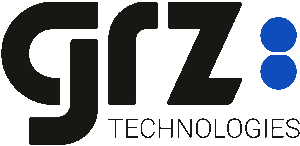Hyundai Motor Company is a leader in hydrogen and fuel cell technology. In 1998, the company established a dedicated fuel cell department, paving the way for the development of the world’s most advanced fuel cell technology. In 2000, Hyundai built its first hydrogen vehicle, the Hyundai Santa Fe. Subsequently, the company’s researchers intensely pursued R&D for years in multidisciplinary fields, including electrodes, membranes, controls, and hydrogen storage systems. Finally, Hyundai launched the first commercially produced hydrogen car, the Hyundai ix35, in 2013.
Xcient fuel cell system by HTWO #
Building on the real-life experience gained with the ix35, Hyundai introduced the second-generation hydrogen vehicle, the Hyundai Nexo, in 2018. The Nexo features a fuel cell system with a net electrical power of 85 kW, complemented by an auxiliary battery to optimize performance. The figure below shows an Xcient system manufactured by HTWO Hyundai Motor Company:

Technical characteristics #
Hyundai’s fuel cell technology excels through a compact size and volume, with a high-power density of
0.21 kW per liter. The system shows an outstanding efficiency with a peak value of 62%. The system withstands very harsh environmental conditions; this is an important advantage. Hyundai tested the Nexo under conditions as cold as -30°C, and as warm as 45°C. Even a cold start at -30°C is not an issue for the fuel cell. The key technical features of the fuel cell system are summarized in the table below:
| Parameter | Value |
| Power (gross) | 95 kWe |
| Power (net) | 85 kWe |
| Output voltage | 250-450 V, with DC-DC converter 450 – 828V |
| Peak efficiency | 62% |
| Operating ambient temperature | -30 °C to +45 °C |
| Dry / wet weight | 175kg / 185kg |
| Volume | 453 L |
The hydrogen fuel cell system developed by Hyundai Motor Company is now ready for mass production, with a rapidly increasing production capacity. Engineers improve the technology in terms of efficiency, cost, performance, and durability in continuous development efforts. Hyundai expands fuel cell applications beyond the automotive sector.
Stationary applications by GRZ #
In 2020, Hyundai announced that GRZ Technologies would integrate the fuel cell system for stationary applications. Examples of such applications are peak shaving or emergency backup power supply. The fuel cells are integrated in GRZ’s DASH Power systems with solid-state hydrogen storage.





